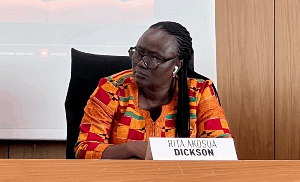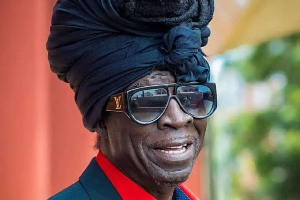The World Bank says that 24 of the world’s lowest income economies will spend $21.5 billion on financing their external public debt in 2024.
According to the Bank’s International Debt Report 2023, in 2022 — the latest year for which data are available —low- and middle-income countries paid a record $443.5 billion to service their external public and publicly guaranteed debt.
The report was published just as Ethiopia became Africa's third nation, after Ghana and Zambia, to default on sovereign bonds in three years. Addis defaulted on a $33 million interest payment.
The World Bank report sounds the alarm on the risks confronting low- and middle-income economies.
“As Ethiopia’s default this month indicates, African countries will continue to face severe financial pressures in debt repayments,” said Prof James Gathii, a founding editor of Afronomicslaw, a network of organisations seeking African sovereign debt justice.
“It is not just that African countries have borrowed too much, it is also the fact that the global financial system and debt architecture is severely stacked up against indebted countries,” Prof Gathii said.
The debt crisis that 33 African countries are facing has arisen due to the countries’ inability to meet their debt obligations, interest and capital, because the debt burden has become too overwhelming for each.
In a time of pinched government budgets, these payments have diverted spending away from health, education, and other critical needs.
The International Debt Report 2023 warns that one in every four developing countries is effectively priced out of the international capital markets.
For the poorest countries, debt has become a nearly paralysing burden: 28 countries eligible to borrow from the World Bank’s International Development Association (IDA) are now at high risk of debt distress. Eleven are in distress.
In the past three years alone, there have been 18 sovereign defaults in 10 developing countries, including Zambia, Sri Lanka and Ghana — greater than the number recorded in all of the previous two decades, according to the World Bank.
Private creditors have also been pulling out of developing countries, leaving them with fewer financing options.
“Private creditors stand first in line to be paid out of any revenue collections ahead of domestic expenditures on basics such as health, education and housing,” said Prof Gathii. “Private creditors are not interested in restructuring debts when a default happens, since they make more money by refraining or delaying restructuring. In the absence of a fair and balanced restructuring mechanism that accommodates both creditor and debtor interests, the debt crisis will continue to spiral out of control.”
The professor of law at Loyola University Chicago School of Law says African countries, including Kenya, Zambia, Ghana, Ethiopia, Zimbabwe, Mozambique, Nigeria and Senegal, will continue to face debt distress as the world economic outlook is unlikely to improve in 2024.
Countries eligible to borrow from IDA are likely to have a rough ride in the coming years: Interest payments on their total external debt stock have quadrupled since 2012, to an all-time high of $23.6 billion, explaining why the debt crisis is not about to slow down come 2024.
One of the contributors to Africa’s debt situation has been the continent’s inability to raise resources domestically to fund its own development.
“According to latest statistics, African countries’ tax-to-GDP ratio hovers around 15 percent, which is the lowest in the world — and half the tax-to-GDP rate of OECD (Organisation for Economic Cooperation and Development) countries,” said Chenai Mukumba, executive director, Tax Justice Network Africa.
“As we look at the implications of the debt crisis on countries' tax revenue, it is important to note that it is largely tax revenue that is used to pay off countries' debts. As such we then have limited tax revenue that is going to crucial public services that are largely used by low-income households and marginalised individuals within our societies.”
One of the indicators used by economists to assess a country’s level of indebtedness is debt-to-GDP ratio. A high ratio suggests that the country may be at risk of failing to meet its debt obligations.
Ethiopia’s debt-to-GDP ratio, for example, is 46.37 percent, lower than that of most advanced countries. But about half of Addis Ababa’s debt is external.
In Kenya, the government’s recent draft supplementary budget estimates highlight the risk of fiscal slippage, with the new deficit forecast for the fiscal year ending June 2024 being roughly one percentage point greater than the original budget forecast of 4.4 percent of GDP.
The continued weakening of the Kenya shilling has added to inflationary pressures in line with Kenya’s heavy import dependence and has increased the country’s already high debt-servicing costs.
Since the beginning of 2023, the Kenya shilling has lost approximately 31 percent of its value against the dollar, falling from 123.5 on December 31, 2022, to 154 on the week ending on December 21, 2023.
The usable foreign exchange reserves were $6,710 million (3.6 months of import cover) as at December 21, 2023, below the statutory reserve threshold of 4.0 months of import cover.
This growing mismatch between the demand and the supply of dollars is disrupting business and fuelling a steady shilling depreciation, which has accelerated in 2023, making it difficult to manage debt come 2024.
“Solutions to the debt situation are proffered by many of those who were within the debt justice movement, who have called for debt cancellation, as much of our debt is, and was, accrued within a system that unfairly situated African countries within the global economy,” said Mukumba.
“Even as we do this it will be important that we increase our domestic resource mobilisation efforts by plugging the gaps where we tend to lose most of our resources, which is through tax avoidance and tax evasion; tax abuse practices largely perpetuated by multinational corporations.”
Africa Business News of Sunday, 31 December 2023
Source: theeastafrican.co.ke













